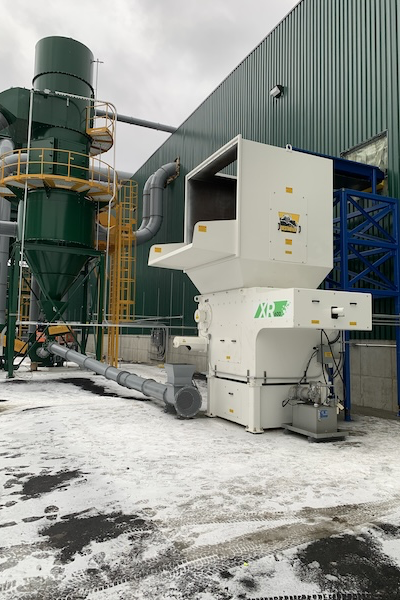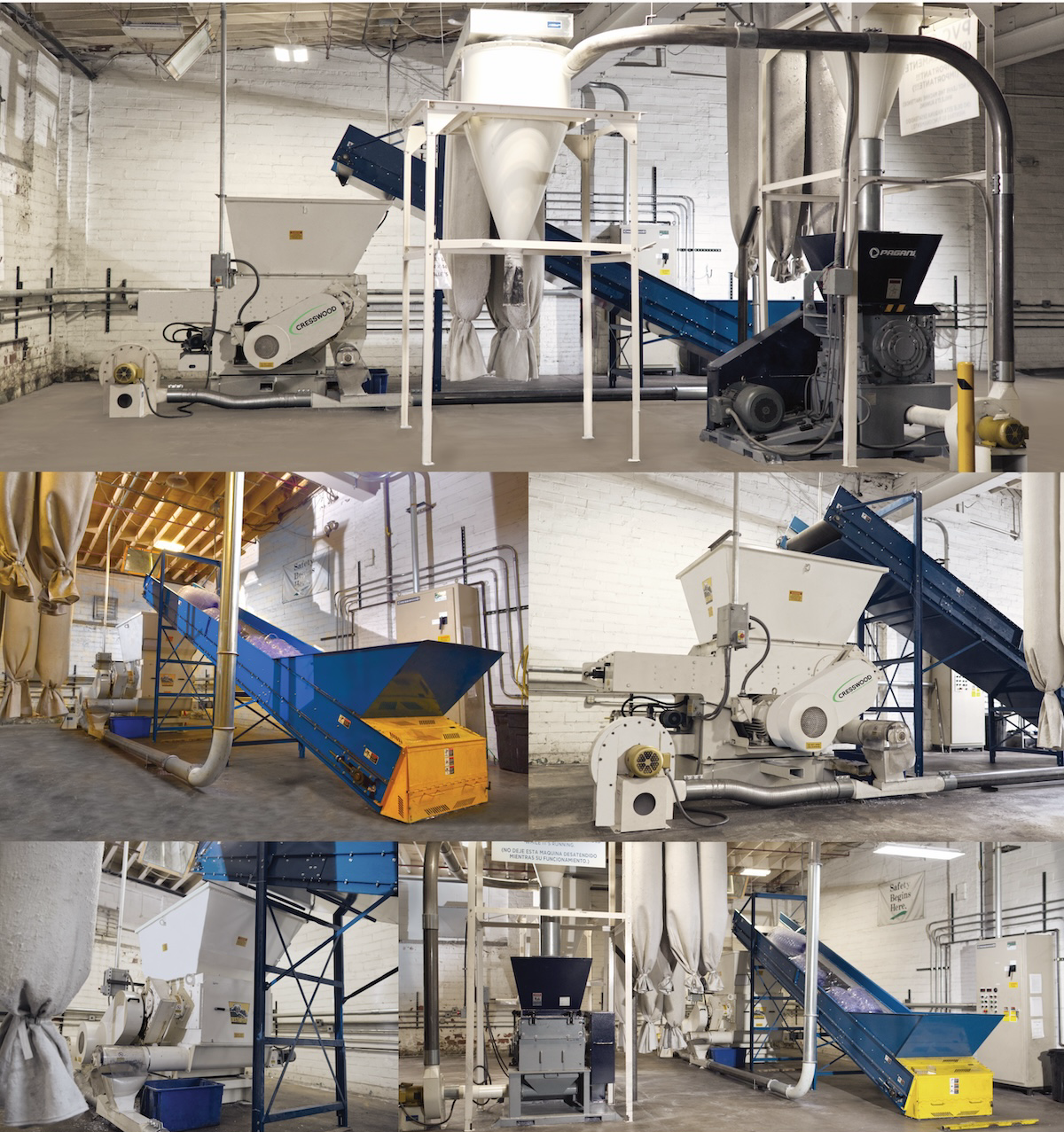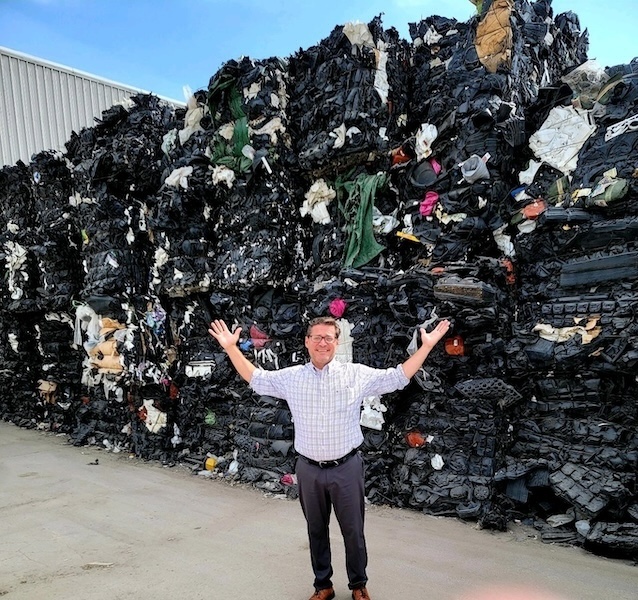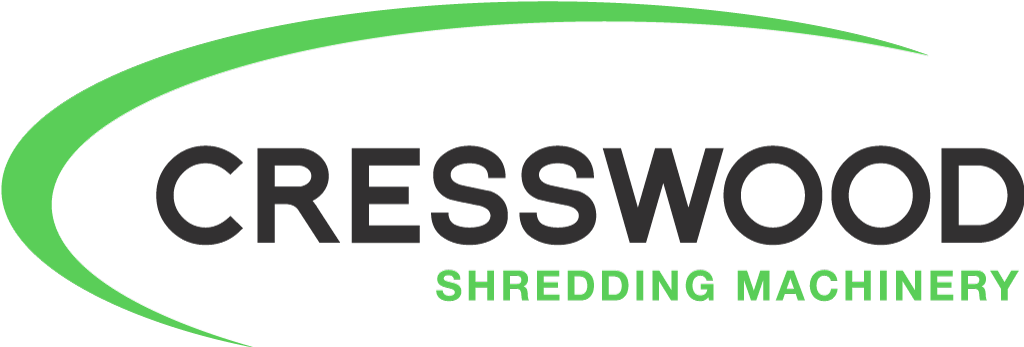As we stand at the threshold of a new era marked by environmental consciousness, sustainability has become the cornerstone of industrial progress. At Cresswood Shredding Machinery, a world class industrial grinder company, we recognize the imperative to embrace eco-friendly practices and lead the way in fostering a greener planet. In this article, we are going to delve into the emerging trends in sustainability within the industrial sector, outline our specific commitment to playing an integral part by providing sustainability solutions, and explore applications and advancements in industrial grinder technology as they pertain to creating circular economies with raw materials of production.
Emerging Trends in Sustainability
Circular Economy
The shift towards a circular economy is gaining momentum, emphasizing the importance of recycling, reusing, and reducing waste. Industries are increasingly adopting closed-loop systems to minimize environmental impact and promote resource efficiency.
Resource Efficiency and Waste Reduction
Companies are focusing on optimizing resource use and minimizing waste generation. This includes the adoption of advanced technologies to enhance efficiency, reduce raw material consumption, and promote responsible waste management practices. As a general rule, low-RPM size reduction equipment like the kind that Cresswood manufactures, requires significantly less energy than comparable high-speed hogs per ton of material produced. The equipment is also powered 100% by electricity, meaning no diesel exhaust or having to store highly flammable fuels on site.
Green Supply Chains
Sustainability is now a key criterion in supply chain management. Companies are collaborating with suppliers who share similar environmental values, ensuring that the entire production chain adheres to eco-friendly practices.

Cresswood XR600 producing boiler system fuel for pallet company in NE
How Shredder Machines Are Helping Our Customers Meet Their Sustainability Goals
For example, one of our customers who is a world leader in the manufacture of wooden flooring for semi-trailers has developed a circular economy in dealing with the large percentage of waste that is inherent to their processes. It comes as a shock to learn that over 50% of the raw materials used for the manufacture of hardwood flooring end up as scrap. These companies find a sweet spot between the cost and quality of the supplied lumber, and utilization rates of 40-50% are commonplace. Expensive automated equipment scans and removes defective portions of the wood so that the quality of the finished product is ensured. The wood must undergo an extensive curing process that culminates in all of the raw lumber being carefully kiln-dried so it doesn’t warp or crack after installation. These kilns use a tremendous amount of energy to drive the moisture out of the green lumber in preparation for sawing and finishing. By transforming the scrap wood inherent in their manufacturing processes into a clean and uniform chip, they run all of their kilns using their own production scrap as fuel. This creates a huge boost to the organization’s margins as they don’t have the expense of buying fuel, as well as eliminating this as landfill waste.

Cresswood turn-key PET and PVC plastic recycling system in DeKalb Illinois
Another example, we have a customer right next door in DeKalb, Illinois who is a leader in the manufacturing of plastic blister packaging. As the individual products are produced out of large rolls of PET and PVC material, a large skeleton of waste is left over. This type of plastic is non-biodegradable, and if sent to a landfill would remain intact for millennia. It is also money wasted if not recouped and has a negative drag on the company’s profitability as the scrap material was purchased at a premium price. They purchased one of our vertically-fed XRV400 shredders as a solution. A large belt conveyor vectors the scrap materials up into the machine, making this a safe and ergonomic means to dispose of the waste skeletons and quality rejects. The Cresswood American made industrial shredder takes the bulk material down to a uniform size and then sends that shredded product to a granulator for secondary processing. A very small and uniform flake is produced as the end product. This is a highly desired commodity on the open market for plastic manufacturers. They sell 850 lb. gaylord boxes of these flakes and create a solid revenue stream that completely offsets the material losses incurred in the production processes. The waste plastic is then re-used in the creation of other plastic products instead of being more stuff thrown in a landfill and buried for centuries.
A third example is a plastic film manufacturer in Indiana. They manufacture the types of thin film bags used at retail and grocery stores all over the country. A significant amount of waste is generated in their processes, both from the extrusion process as well as quality rejects. They are using a large XRV700-200 plastic shredder with a film rotor to shred the waste into a uniform particle. This shredded product is then fed directly into an extrusion machine as feedstock, effectively transforming waste into usable products. The benefit to their bottom line is obvious, but it also has saved the company a vast amount of valuable production floor space that used to be swallowed up by legions of gaylord boxes of scrap materials.

First Star Recycling takes in and repurposes millions of pounds of waste plastics otherwise bound for landfills
The last example is a company called First Star Recycling in Omaha, Nebraska. They purchased one of our first plastic film shredding machines and are using it in support of their Hefty ReNew™ program. With this program, residents in the greater metro area of Omaha collect plastic film waste in special orange bags that are supplied to each home. The waste is collected and then used in the creation of new plastic products like decking, patio furniture, and lumber. Some of this waste is pelletized and sold on the open market. In order to create these circular “zero-waste” economies, the waste film must first be shredded into relatively small, uniform pieces. This is where the Cresswood XRV600-100 Film Shredder comes into play as the primary size-reduction machine. From there, the shredded film is sent through a series of secondary processes that condition it properly for extrusion.
In the relentless pursuit of sustainable practices, while also maintaining or even increasing profitability, industries worldwide are continually seeking innovative solutions to minimize their environmental footprint and show better stewardship of raw materials. At Cresswood Shredding Machinery, our commitment to green industrial solutions is unwavering. Cresswood remains committed to shaping a sustainable tomorrow, where industrial progress coexists harmoniously with our planet’s well-being.

Recent Comments